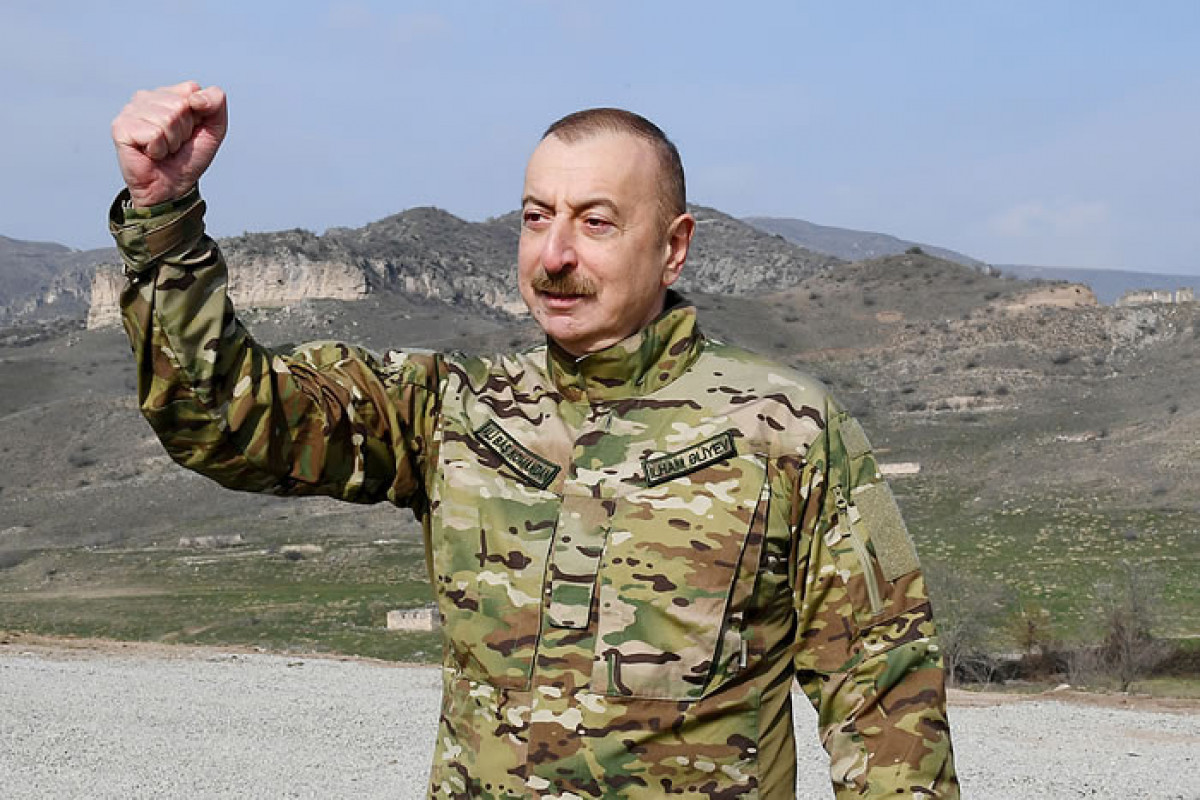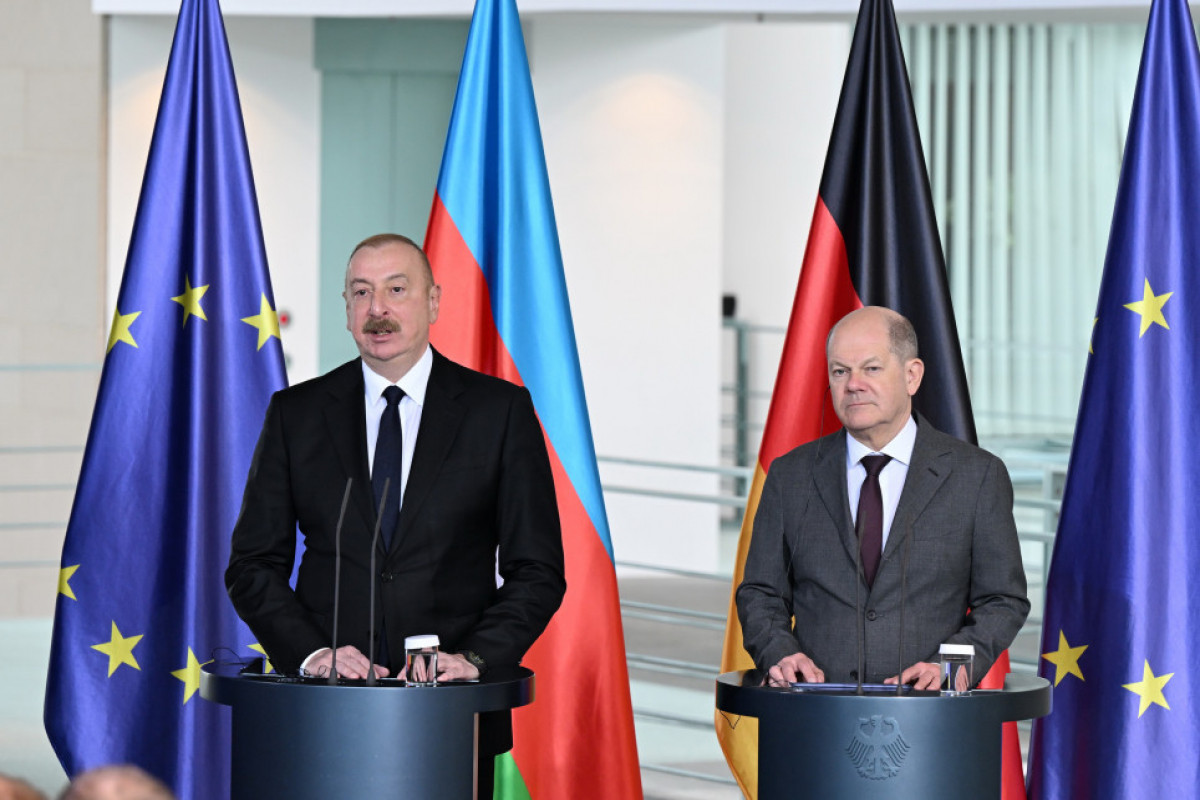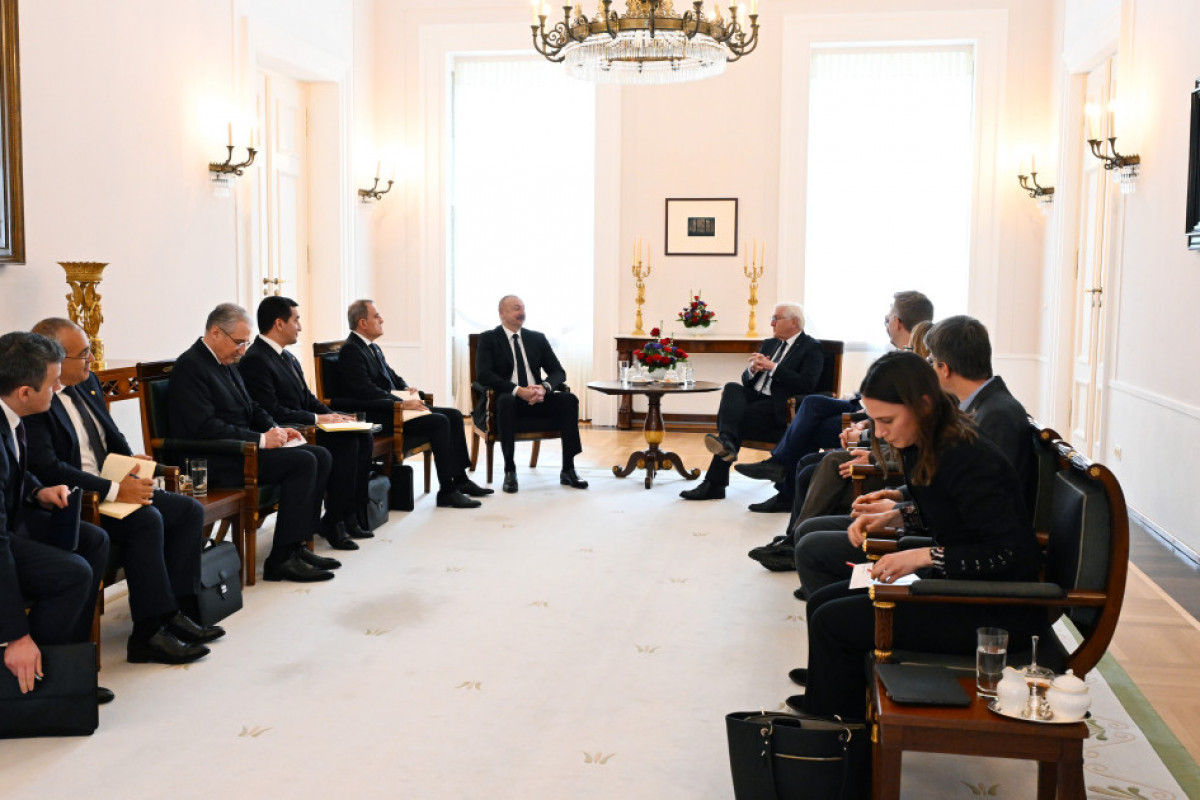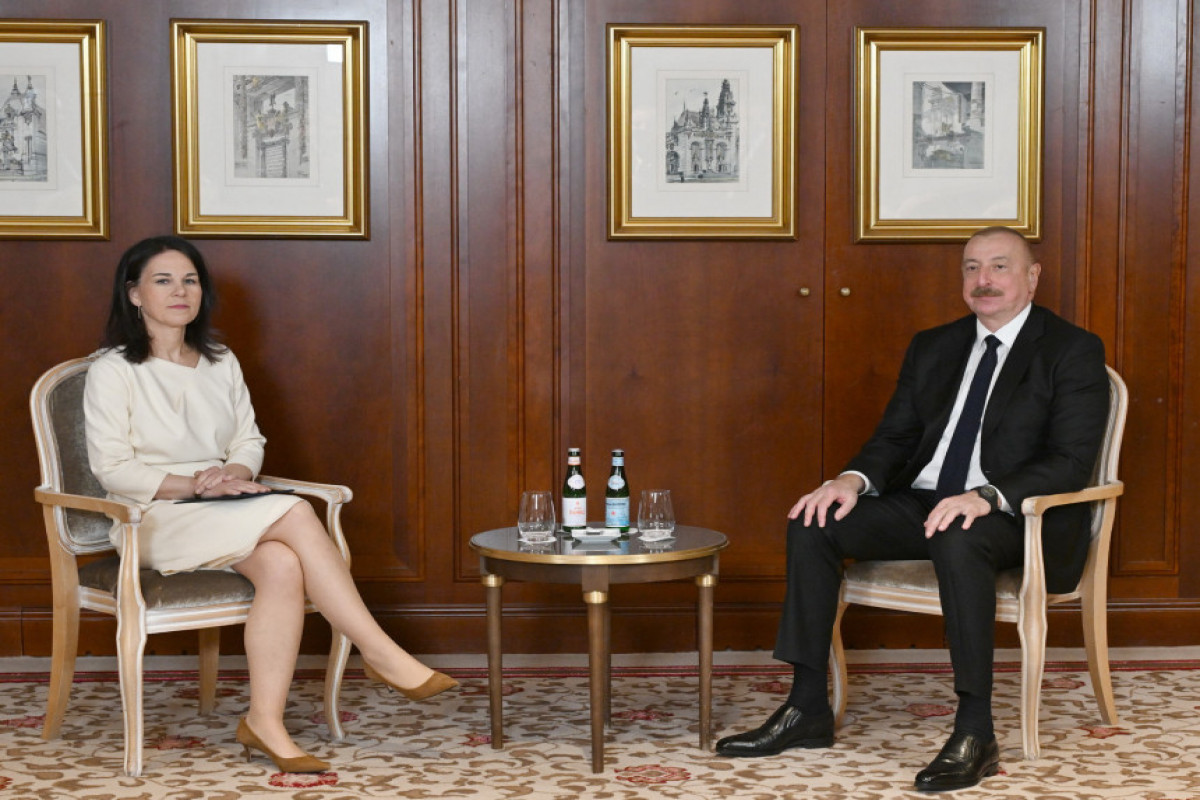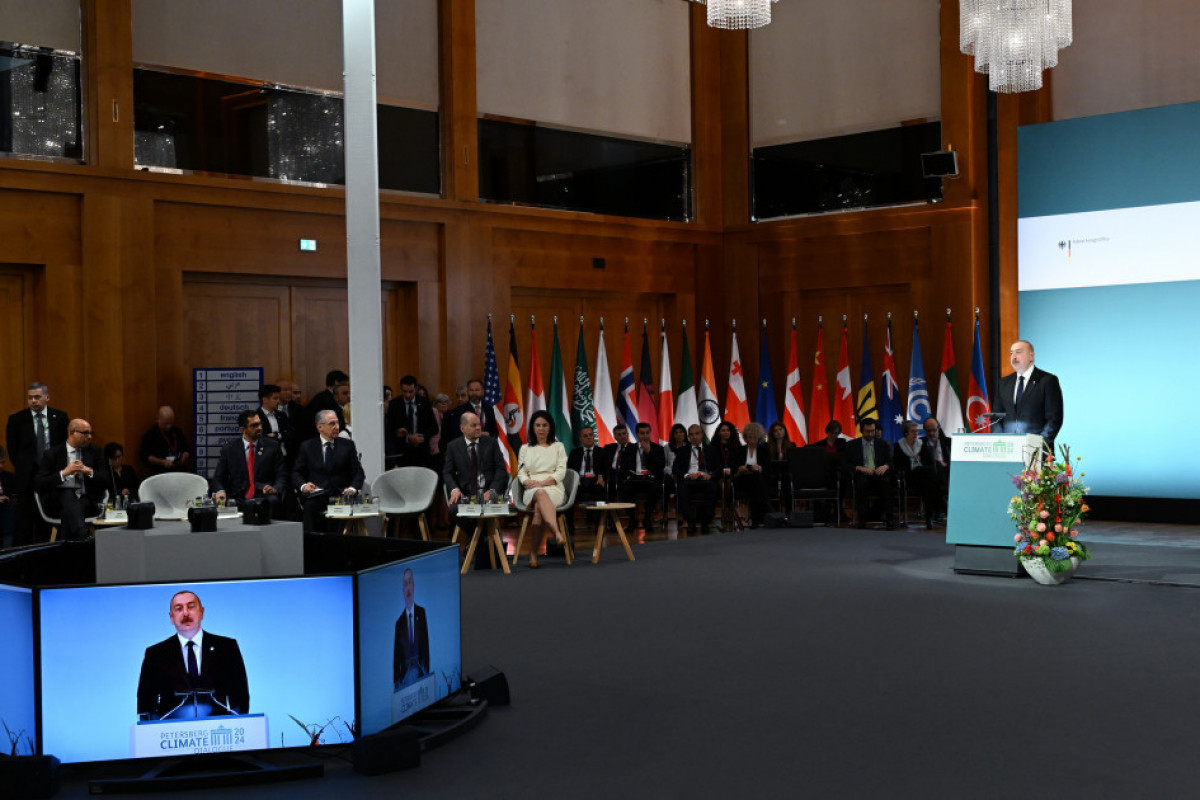"You know, almost from the very first days of hostilities I repeatedly said in my interviews to journalists and speeches and appeals to the Azerbaijani people that we are ready to stop the war as soon as the Armenian prime minister announced the dates of withdrawal from the occupied territories," said President Ilham Aliyev while responding to the question "The trilateral statement put an end to this war. Finding itself in a desperate situation, Armenia capitulated. We all remember the famous footage and the triumph of Azerbaijan. How was this decision made? What was left behind the scenes? Perhaps there are some details that can be shared today about this political backstage. Because everyone understood the situation perfectly well. For many such a triumph was a surprise. Everyone realized that Armenia was losing. But all of a sudden, Mr. Pashinyan signed an act of unconditional surrender, although he refused to do it live, unlike you and Russian President Vladimir Vladimirovich Putin. What was the mechanism?" in his interview to editor-in-chief of Russian influential “Natsionalnaya oborona” magazine, well-known military expert Igor Korotchenko, APA reports.
"I also said this to many Western leaders, leaders of Western countries who called me during the hostilities and demanded or asked us to stop. I said: I am ready. I give my word and I always keep it, but give me a timetable. You want the war to stop, and so do I, but give me a timetable, talk to the Armenian leadership. I need dates of when the territories will be liberated. We don't need war. And I said this publicly more than once during the hostilities. Also, of course, we were in regular contact with Russian President Vladimir Vladimirovich Putin at different stages of the hostilities. After the outbreak of hostilities, our first telephone conversation took place on 7 October, on his birthday. Traditionally, I wish him a happy birthday. And this was our first telephone contact. Already 10 days had passed since the outbreak of hostilities. We also discussed what we could do and how to stop the war. I had suggestions. Vladimir Vladimirovich has partially covered this in one of his interviews, so I don’t want to go into too much detail. But it is already known that these proposals were supported by the Russian side, but the Armenian side rejected them and, I think, made a tragic and fatal mistake. Because if they had accepted the plan I proposed, which was supported by Russia, then the defeat would not have been so humiliating for them and thousands of servicemen from both our side and the Armenian side would have survived. In other words, it is the Armenian leadership that is to blame for the death of these people, as it passed up on this historic opportunity at least twice during the hostilities. They counted on their Western friends to help them. They made open claims to Russia as to why Russia was not fighting for them, although the position of Russia was in full accordance with international law because military operations were being conducted on the territory of Azerbaijan and not in the CSTO area of responsibility, which they themselves should have known very well. Moreover, the appeal to the CSTO, the very CSTO which Pashinyan and his henchmen did their best to discredit by arresting the CSTO secretary general, was somewhat surprising. In general, it is a blatant fact. I don’t think anything like that has happened anywhere in the world – they were blocking the appointment of the current CSTO secretary general for one year, acting defiantly. This behavior did not correspond to the place, role and importance of Armenia on the world map.
So I return to what I said earlier. I have made these statements many times, and this position was known to Vladimir Vladimirovich Putin. And after we had liberated the city of Shusha, Vladimir Vladimirovich called me and said that the Armenian side was ready to do what it was supposed to do. He asked: “Do you stick to your position?” I said: “Yes, I do not change my position. If they give us the dates for the withdrawal of their troops from the remaining occupied territories, we will stop.” This happened in the evening on 8 November. And on 9 November, we agreed to talk again because Vladimir Vladimirovich played a very active role, as if conveying my messages to Pashinyan and his messages to me. This lasted from the early morning of 9 November until late at night. And, of course, there were a lot of issues that needed to be agreed upon. All this was happening in an emergency mode. Imagine that we had to agree on a text between two warring countries in a matter of one day, and, of course, this text had to take into account the realities. And it did take these realities into account. I took into account the fact that Azerbaijan is a victorious country and Armenia is a country that capitulated. So this process of approvals went on until late at night and beyond. By Baku time it was already 10 November, which is why we call it the Statement of 10 November. In Moscow it was still 9 November. And finally the text was agreed. Of course, it was supposed to be signed, but Vladimir Vladimirovich asked me not to insist on Pashinyan signing it in our presence. The President of Russia is a very delicate person, very subtle, he treats everyone with great respect, so I said that I would not insist. I do not need any additional elements associated with humiliation, because this is not about humiliation of a person, but of a country, which we cannot afford. So I agreed that the two of us would sign it, but, of course, with the guarantee that Pashinyan would also sign it somewhere. It is still not known where he signed it. I have repeatedly asked this question in public, but have not received an answer. Maybe we will find out about this a year later, at least for history. This is about as much as I can say about that day," the head of the state noted.


